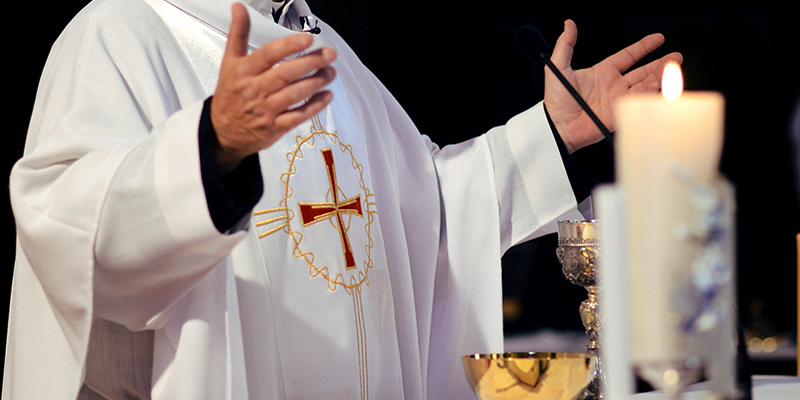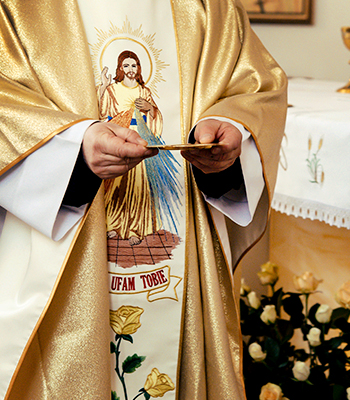Discover The Power of Faith in Your Everyday Life
The Church gradually spread throughout the Roman Empire and beyond, gaining major establishments in cities such as Jerusalem, Antioch, and Edessa It also became a widely persecuted religion. It was condemned by the Jewish authorities as a heresy see also Rejection of Jesus The Roman authorities persecuted it because, like Judaism, its monotheistic teachings were fundamentally foreign to the polytheistic traditions of the ancient world and a challenge to the imperial cult The Church grew rapidly until finally legalized and then promoted by Emperors Constantine.
Powerful Life Lessons That We Can Learn from Psalms
Already in the 2nd century, Christians denounced teachings that they saw as heresies, especially Gnosticism but also Montanism. Ignatius of Antioch at the beginning of that century and Irenaeus at the end saw union with the bishops as the test of correct Christian faith. After legalization of the Church in the 4th century, the debate between Arianism and Trinitarianism, with the emperors.

Five Powerful Lessons About Prayer from Jesus
The New Testament never uses the adjectives "catholic" or "universal" with reference to the Christian Church, but does indicate that the local communities are one church, collectively, that Christians must always seek to be in concord, as the Congregation of God, that the Gospel must extend to the ends of the earth and to all nations, that the church is open to all peoples and must not be divided, etc.
How Important is the Church
On this date, Theodosius I decreed that only the followers of Trinitarian Christianity were entitled to be referred to as Catholic Christians, while all others were to be considered to be heretics, which was considered illegal In 385, this new legal situation resulted, in the first case of many to come, in the capital punishment of a heretic, namely Priscillian, condemned to death, with several of his followers, by a civil tribunal for the crime of magic In the centuries of state-sponsored Christianity that followed, pagans and heretical Christians were routinely persecuted by the Empire.
Debunking the Free Will Myths
- Peace in an Age of Outrage
- Why Expository Preaching
- Surprised by the Perfect Being
Even after the split of the Roman Empire the Church remained a relatively united institution apart from Oriental Orthodoxy and some other groups which separated from the rest of the state-sanctioned Church earlier The Church came to be a central and defining institution of the Empire, especially in the East or Byzantine Empire, where Constantinople came to be seen as the center of the Christian world, owing in great part to its economic and political power.
By HetmayarWe are committed to being a more caring, united Catholic community of faith that welcomes all ages, and cultures and strives to build the Kingdom of God.

Once the Western Empire fell to Germanic incursions in the 5th century, the Roman Church became for centuries the primary link to Roman civilization for medieval Western Europe and an important channel of influence in the West for the Eastern Roman, or Byzantine, emperors. While, in the West, the so-called orthodox Church competed against the Arian Christian and pagan faiths of the Germanic rulers and spread outside what had been the Empire to Ireland, Germany, Scandinavia, and the western Slavs, in the East Christianity spread to the Slavs.
Starting in the 7th century, the Islamic Caliphates rose and gradually began to conquer larger and larger areas of the Christian world Excepting North Africa and most of Spain, northern and western Europe escaped largely unscathed by Islamic expansion, in great part because richer Constantinople and its empire acted as a magnet for the onslaught The challenge presented by the Muslims would help to solidify the religious identity of eastern Christians even as it gradually weakened the Eastern Empire Even in the Muslim World, the Church survived the modern Copts, Maronites, and others albeit at times.






Robert John
January 13 2023Holy, Catholic, Apostolic, Roman Church–we shall find no expression more noble, more sublime, or more divine, than the phrase which calls it 'the Mystical Body of Jesus Christ'.
ReplyChristine Hill
December 27 2023The Holy Catholic and Apostolic Church is the only flock of which Jesus Christ, the Son of God.
Reply